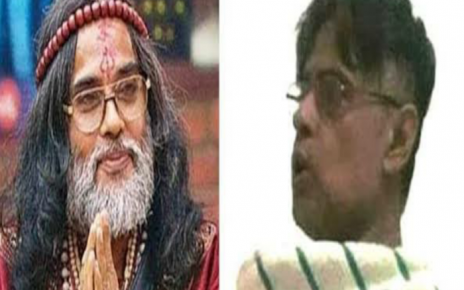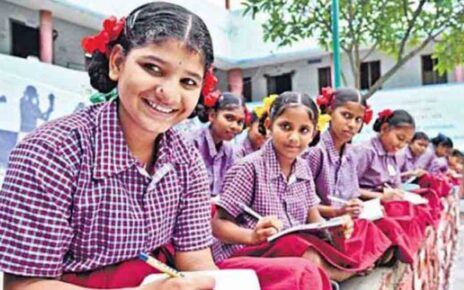
New Delhi: With the opposition reduced to one-third of its strength in the Lok Sabha after the suspension of 95 MPs from the lower house, the government has taken up the contentious bills to replace the existing criminal laws for consideration and passage.
The Bharatiya Nyaya Sanhita, Bharatiya Nagarik Suraksha Sanhita and the Bharatiya Sakshya Adhiniyam bills were introduced in the Lok Sabha in August to replace the Code of Criminal Procedure Act, 1898, the Indian Penal Code, 1860, and the Indian Evidence Act, 1872, respectively.
They were later withdrawn and reworked versions of the bills were introduced in the lower house last week. The new bills, called the Bharatiya Nyaya (Second) Sanhita, 2023, the Bharatiya Nagarik Suraksha (Second) Sanhita, 2023 and the Bharatiya Sakshya (Second) Bill, 2023, were taken up for consideration on Tuesday afternoon.
After the suspension of a record 141 MPs from the Lok Sabha and Rajya Sabha beginning last week, the opposition has alleged that an “extreme level of dictatorship” is in place in the country and the government wants to “bulldoze” important legislations without any debate. The MPs were suspended after carrying out protests in both Houses of Parliament, demanding a statement from Union Home Minister Amit Shah and a discussion over the stunning security breach in Lok Sabha last week.
Congress MP Manish Tewari, who was among the lawmakers suspended on Tuesday, made a specific reference to the bills on the new criminal laws and said that the Parliament has been delegitimised. “This is to lay the framework of passing the most draconian law in Parliament which will turn this country into a police state,” he said.
Government’s Take
The government has claimed that the proposed criminal laws are people-centric and their main purpose is to protect the constitutional, human and personal rights of citizens. Home Minister Shah has also said that, unlike the laws brought in during British rule, the three bills are aimed at providing justice rather than meting out punishment.
The redrafted laws included a change in the definition of terrorism, making it more broad-based. The definition In the Bharatiya Nyaya Sanhita Bill now includes the term “economic security”, among other changes.
When the bills were introduced last week, Congress floor leader Adhir Ranjan Chowdhury had asked the government to refer the three bills to a joint select committee. Mr Shah had refused and emphasised that there was no need to do so since the Parliamentary Standing Committee on Home Affairs had reviewed them.
‘Copy-Paste Of Old Laws’
The opposition, including the Congress, Trinamool Congress and the DMK have said many sections of the new criminal bills are a copy and paste of old laws and that they retain the colonial spirit that the government has said it wants to get rid of. Many members of the Opposition INDIA alliance, which is meeting in New Delhi on Tuesday, have also said that the bills should be taken up after a new government is elected in the Lok Sabha elections next year.
Congress MP Shashi Tharoor, who was suspended on Tuesday, said the government is trying to ensure an opposition-mukt (opposition-free) Lok Sabha.
“They have no desire to have a democratic system of parliamentary democracy at work. What they are interested in is an opposition-mukt Lok Sabha. So, we are seeing a situation where we feel there is no respect for parliamentary democracy,” Mr Tharoor said.
Suspended Congress MP Randeep Surjewala also accused the government of “not wanting to discuss the Indian Penal Code, the Criminal Procedure Code, or any law that holds them accountable,” claiming they preferred to rule by cheating rather than engaging in democratic discourse.
“Even if that voice remains only one, it will always carry the sorrow and suffering of 140 crore countrymen. The Bharatiya Janata Party does not want to discuss the Indian Penal Code and Criminal Procedure Code and Indian Evidence Act; these three, if I call them our criminal code of conduct, are the laws that provide punishment for crimes in the country,” Mr Surjewala told news agency ANI.
“They do not want to discuss those three laws; they want to do whatever they want by bulldozing those three laws. Don’t you want the people of the country to know what this provision is? What are the flaws in these laws? After all, the lives of the people are governed by these laws,” he added.
Trinamool Congress Chief and West Bengal Chief Minister Bengal Chief Minister had written to Home Minister Shah last month, asking him not to rush the new criminal laws and try and build consensus on them.
“I strongly believe that these are very significant legislations that form the bedrock of our penal-criminal jurisprudence. As such, the proposed overhauling of the existing criminal-penal statutes and replacing them with new statutes is bound to have far-reaching long-term implications on our polity,” Ms Banerjee had said in her letter to Mr Shah.




